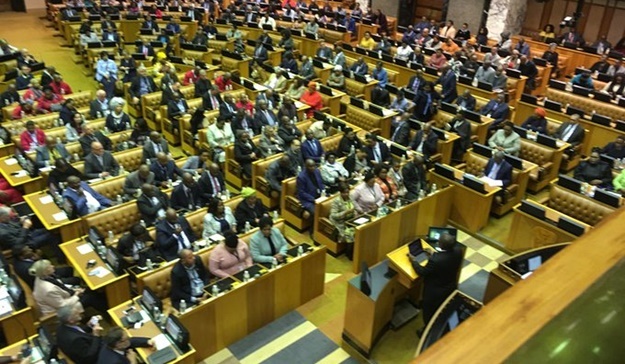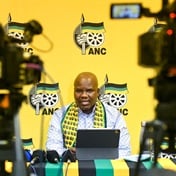
South Africa once again awaits a month of crucial domestic political and economic outcomes. First up is the State of the National (SONA) address from President Ramaphosa to be followed 14 days later by the 2020 Budget from Tito Mboweni.
Both events come at a crossroads for the country as it grapples with economic decline and despair following years of unrelenting policy failure, patronage-based and corruption-inducing politics and an increasing obsession with confidence-sapping populist rhetoric.
For President Ramaphosa, it is once again, a chance to take some dramatic steps away from the precipice of disaster and present a "Rubicon-esque" re-boot of a political and policy environment that has stagnated and as such, contributed to the malaise we are currently in.
Some commentators have compared this year's SONA to 1990 when FW De Klerk ditched decades of disastrous decision-making to forge a new South Africa. For the "New Dawn" Ramaphosa, hope always springs eternal that his "reformer" credentials remain in-tact and that it is well within his grasp to cross his own Rubicon.
For two years, South Africans have been listening to SONAs that express positive sentiments yet fail to deliver. And this year it is likely to be more of the same. There is little indication that the president will be able to herald a new era of policy reform in the wake of on-going ANC policy confusion as well as well-worn political and personality battles.
For the President therefore, the most likely outcome is one of a continuation of the parallel processes that already exist.
An attempt to steer the State back to some form of credibility while simultaneously managing - and even pandering to the ANC's own populist and statist flank.
This is especially relevant since the EFF continues to make electoral gains from the ANC.
We have all analysed the constraints that bind Ramaphosa to this piecemeal approach to governance.
From fractious factions, recalcitrant alliance partners, ideological clashes and fear of state-capture-related prosecution, the ANC remains a party that is barely governable within itself.
Under those conditions, there's little likelihood of any new and unambiguous approach - or policy break-out - from the coming SONA.
In the past few weeks, we have witnessed the issue of EWC (expropriation without compensation) wreaking havoc with the critical need for policy certainty.
Utterances from the ANC suggesting a diminishing role for the courts in the decision-making on expropriated property simply negates the very same confidence that President Ramaphosa seeks when he addresses potential foreign investors.
The ongoing issues relating to the future of the Public Protector and the apparent (and increasing) unease within the ANC over just how this appointment will be dealt with further erodes confidence in the capacity of South Africa to restore independence and integrity within its core institutions.
The warrant for the arrest of former president Jacob Zuma, has similarly had a very ambiguous reaction from senior members of the ANC.
Indeed, it may well be that Bathabile Dlamini's assertion that there is an "evil white establishment" behind Zuma's legal woes, is a sentiment prevalent within a substantial faction of the governing party.
Questioning the courts looks like being a new sport within some ANC quarters which again undermines any genuine attempt at a restoration of governance credibility.
This expression of unmitigated support for the former president as well as the hitherto inability to prosecute state-capture graft transgressors, will once again be looked at poorly by those seeking signs of the ANC accepting greater accountability.
Policy uncertainty and populist rhetoric continue to undermine confidence.
In addition, we can add the non-bail out, bail-out by the Development Bank of South Africa (to the tune of R3.5bn) for South African Airways and the seemingly sympathetic hearing that Cosatu's proposed worker pension bailout of Eskom to the value of R200bn is reportedly receiving from the likes of Pravin Gordhan and even the president himself.
The message here is that there remains little appetite for meaningful policy shifts towards greater private participation in an economy which has been held back by state ineptitude.
The cumulative effect of this debate is that the necessary structural reform is going to be tough to achieve in the short term.
While the business rescue process at SAA remains locked in discussions with the unions, the issue of job cuts at the state airline is essential.
Similarly, given the apparent over-staffing at Eskom, the Cosatu pension-scheme bail-out is predicated on no job losses whatsoever.
Such a scheme undermines the requests from the ratings agencies and the likes of the World Bank for the restructuring of the state's bloated bureaucracy. It also assists Cosatu in protecting the worker-base of Eskom.
To further add confusion and under duress as load shedding again kicked in, Gwede Mantashe this week announced a substantial liberalisation of the way business can generate their own power.
In this way, a parallel approach of retaining control over Eskom (and perhaps the new mooted electricity entity) is offset against some concessions to the private sector.
As we approach SONA, it does seem that parallel policy processes are being followed.
But ultimately, the state continues to resist relinquishing as much control as possible. And, as such, the structural reforms required look set to be stillborn next week.
In February 1990, FW De Klerk believed he was sufficiently strong to undo the Authoritarian Apartheid state.
But, in 2020, Cyril Ramaphosa simply doesn't have sufficient internal support to exact dramatic policy shifts. The best that he will do is continue to be frustratingly piecemeal which might keep his party hobbling along, yet is ultimately likely to satisfy few both inside and outside the ANC.
But, as analysts must acknowledge, it's all very well presenting this view.
FW De Klerk showed little signs of freeing up the political terrain in advance of his speech some 30 years ago. And neither does President Ramaphosa today. But just look how Feb 2nd 1990 ended!
- Daniel Silke is a political analyst, author and keynote speaker




 Publications
Publications
 Partners
Partners






















